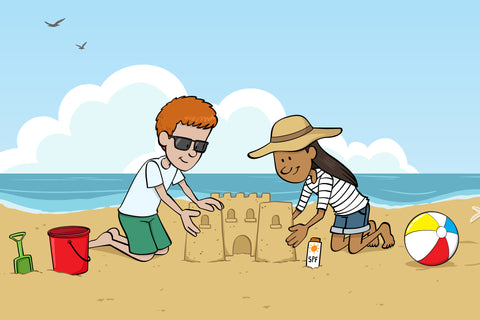
Reinforcing Positive Norms
Our expectations of what things will do for us influence the choices we make. We choose to do things or choose to buy things with the expectation the choice will provide a benefit or contribute to our efforts to reach a broader goal. For example, someone may expect the new pair of running shoes they bought to help them run faster. Running faster will help them run a faster mile. Running a faster mile will get them to the finish line first. Many factors contribute to our expectations. Media portrayals of products and events and the actions of others influence the appeal or perceived utility we hold for certain activities or products.
Expectations of alcohol use works in this way. Some people are drawn to alcohol by a positive expectation of what drinking will do for them, like make them feel happier or look cooler. Portrayals of alcohol use in film, social media, video games, and music, for instance, rarely include the negative consequences of drinking alcohol in their story telling. The follow-on effect on our expectations therefore is a bit one-sided.
Adolescents often overestimate the number of their peers who drink and are often surprised to find out that fewer than 15% of adolescents participate in underage ATOD use, meaning more than 85% of teenagers do not use drugs, including alcohol.
Presenting a more complete picture regarding peer behavior norms is a central tenet of effective prevention. Early intervention in a child’s development strengthens protective factors, like healthy normative perceptions of the risks of underage alcohol use, before problem behaviors develop. Building protection within the adolescent prepares and equips him or her to resist or reject problem behaviors and mitigates the influence of the risk factors faced at school, at home, and in the community.
Establishing healthy, positive norms is an essential part of building expectations aligned with healthy decision making. Presenting and reinforcing positive messages consistent with healthy, pro-social norms about drug-free living will yield more balanced expectations of alcohol use and other risky behavior.
Upcoming Open Enrollment Trainings
Curriculum Trainings:
August 8-10, 2023 - Los Angeles, CA
October 3-5, 2023 - Boston, MA
February 6-8, 2024 - Atlanta, GA
Too Good Curriculum Trainings combine evidence-based prevention strategies and proven best practices to give you the skills, knowledge base, and confidence to deliver Too Good effectively and with results. Our professional trainers bring extensive, real-world classroom experience to the training sessions so you can get the most out of your Too Good implementation.
Single day sessions at each development level for Too Good for Drugs and TGFV - A Peaceable Place / Social Perspectives, for Elementary, Middle School, and High School and for Seeds of Nutrition for Middle School are available.
Register Here
|
|


